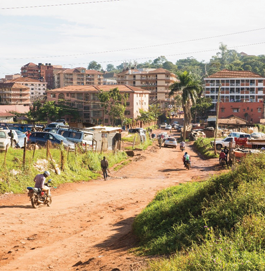Volunteer tourism as part of the orphan industrial complex
Ecorys, in cooperation with Bureau Beke and Radboud University, conducted research into the nature of volunteer tourism from the Netherlands to residential care institutions for children. The purpose of this research was to determine the size and scope of ‘orphanage tourism’ from the Netherlands, to identify which actors have which role/responsibility and what the government’s perspective is for action.
The study concluded that the origin and maintenance of tourism to residential care facilities for children is the result of a complex interplay between supply and demand. In some cases, the institutions are used as earning model in which income is generated from the intercountry adoption of children and tourism. Findings of the research show that volunteer tourism is part of a wide range of ways in which residential facilities in these countries are supported by the Netherlands (and other countries).
Volunteer tourism to residential care facilities is part of a complex ecosystem, also referred to as ‘orphan industrial complex’, and that it can have serious consequences for the children hosted in the institutions, including: increased attachment issues; exposure to unprofessional care; risk of abuse or child trafficking. Volunteer tourism to residential care facilities can also have a disruptive effect on local labour markets and risk reproducing neo-colonial stereotypes on the relationship between the West and low- and middle-income countries.
Nevertheless, the issues linked to volunteer tourism to residential care facilities can also apply to similar types of activities such as visits to schools or crisis centres. Therefore, any government action should be broader than focusing merely volunteer tourism to residential care facilities. Moreover, it would be beneficial if the government would focus her activities on the Private Development Initiatives as this research shows that the largest number of volunteers plan their stay abroad through those smaller organisations, which largely operate under the radar.
For more information, please read the full report (pdf, in Dutch).

29 December 2021
2 minute read
Key Experts
Gabriëlle op 't Hoog
Senior Consultant



